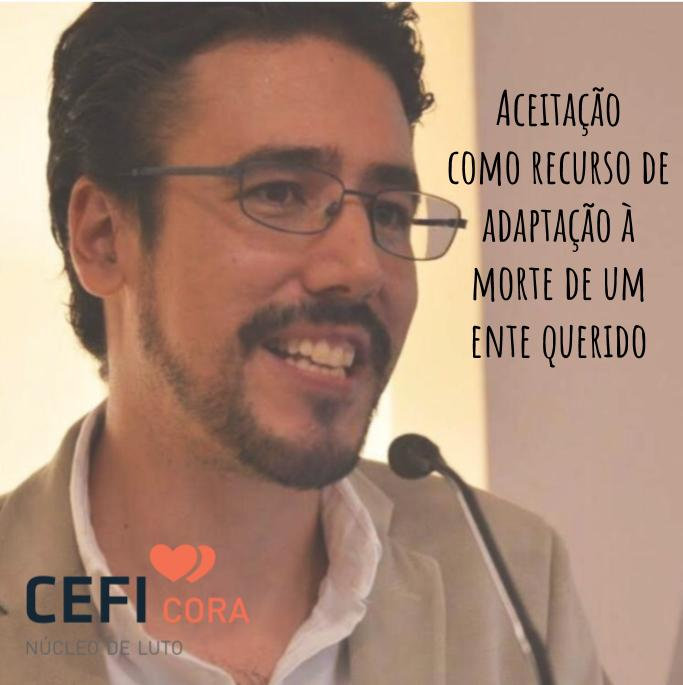Acceptance as a resource of adaptation to the death of a loved one - Text by Professor José Ignacio Cruz Gaitán


Acceptance as a resource of adaptation to the death of a loved one - Text by Professor José Ignacio Cruz Gaitán
Culturally, we have been taught to look for and keep pleasant emotions and thoughts,
from this point of view, it guarantees us happiness, stability and a smooth functioning everyday, however, when these emotions change to other uncomfortable or unpleasant, the task is to find a way to neutralize, change and get rid of them like cancer.
Many guidelines are consistent with this view, teaching people that whenever they feel pain, they take a drug, take a deep breath, or use other strategies to change their thoughts and emotions to more pleasant ones. . This view of reducing discomfort may make sense in some contexts, but in most losses it confuses and in some cases slows the flow of pain. In other contexts, moving away from pain can make a lot of sense, but when the pain is related to the loss of a loved one, this pain is trying to tell us that things have changed, and we need to make changes. in
our lives and our inner world, by running away from this pain only postpones the inevitable changes that need to be made.
This pain is natural, normal and expected when you lose something or someone that matters to you, it's the other side of the coin when you want and get involved, the loss of that connection has its As a result, it is called pain and you live in different ways according to your history and personal characteristics. Trying to constantly change this contributes to generating more pain and suffering.
Acceptance, while seeming contradictory, is one of the most powerful forms of change in this context, because it redirects one's efforts because instead of looking for ways to avoid discomfort, one's effort is redirected to finding ways to adapt to a new context, connect with what's important in loss, and get on with your life the way you choose to live.
This alternative involves getting in touch with the experience that the person was trying to escape, seeking to relate to their own emotions, thoughts, physical sensations
without trying to stop them, observing them as part of the landscape at this difficult time in life, while spending some time working on what is important to him, what he appreciates and values, without negative internal experience influencing what he does.
>
The first step in approaching the grief experience from an acceptance posture involves understanding and acknowledging your own inner experience, identifying how you feel and how it arises, and how the urges to avoid uncomfortable situations appear. The second step is the willingness, which refers to stopping struggling with this pain and allowing experimentation without trying to neutralize or alter, implies letting the pain come into life without judging it as good or bad. Just recognizing that you are here and now. And finally, the compromise, which refers to maintaining that position over time, is applied because it is important, not as a means of control, nor as a punishment, it is for work on the things that are important and the things you want in your life,
trying to adapt to this new phase, devoting your effort to it, maintaining healthy behaviors, despite what cannot be changed. < / p>
José Ignacio Cruz Gaitán - Psychologist. Master in Psychotherapy. CEFI Contextus team member. Graduated in Conductual Dialectic Therapy by Behavioral Tech and with multiple trainings in Acceptance and Compromise Therapy, Functional Analytic Therapy and several Contextual Therapies. Member of ACBS Chapter Mexico, Director of the West Conductual Therapy Center in Guadalajara, Mexico. Co-author of the book “Duel: Treatment based on Aceptación y Compromiso Therapy” as well as articles and book chapters on suicide and grief. Has clinical experience with patients at risk of suicide, suicide bereavement, depression, anxiety and patients with difficulties in emotional regulation.

